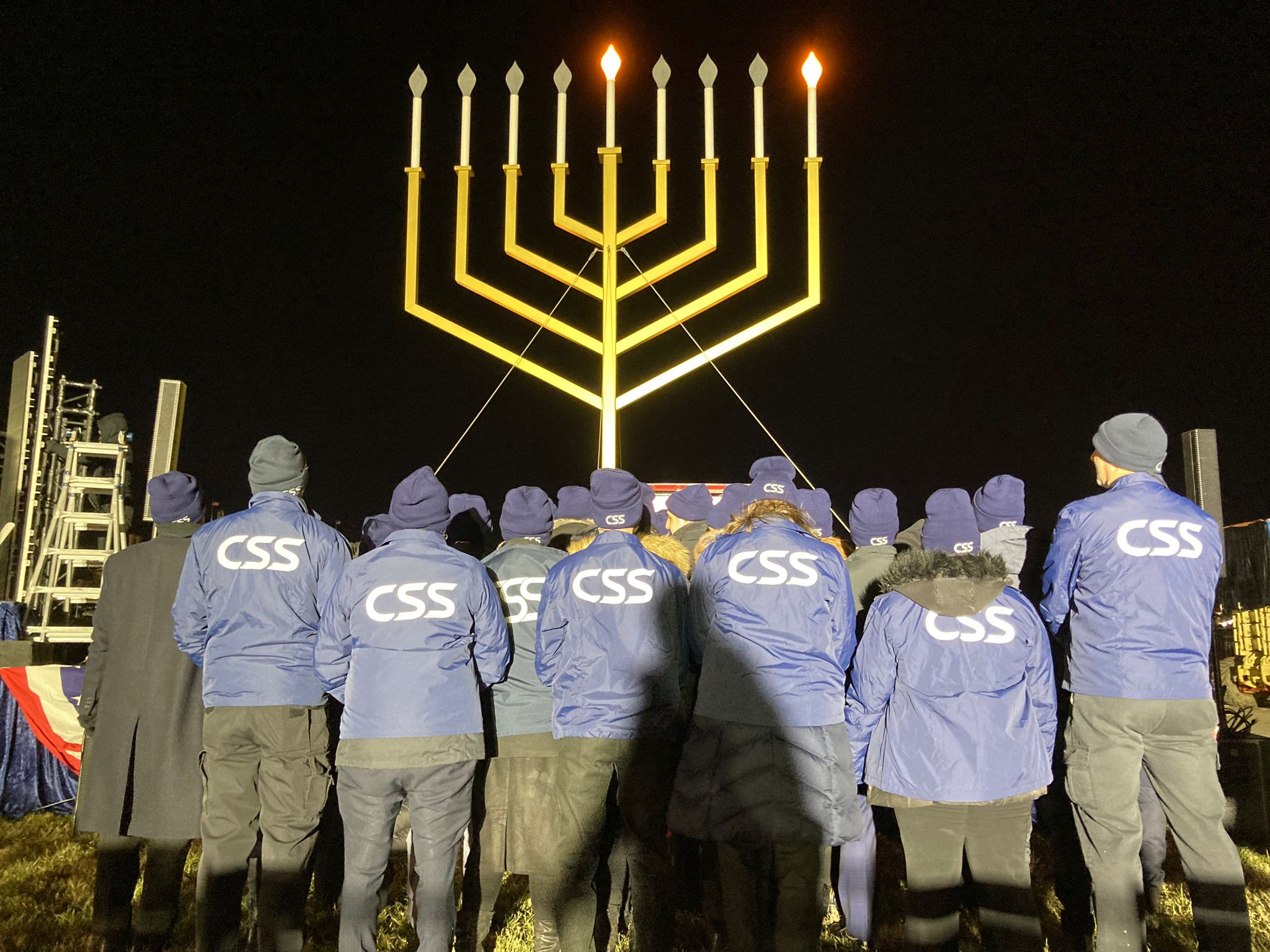

In less than 15 years the Community Security Service (CSS) has grown from humble origins, organizing the protection of one New York City City shul to now fielding over 2,000 active volunteers in over 150 synagogues across the United States. And they are on the path for continued strong growth.
CSS pursues one central mission—to professionally train local volunteers, using best practices in federal, state and local law enforcement, so they can monitor the security of their own synagogues and serve as informed liaisons with their local police departments.
As Evan Bernstein, CEO of CSS, shared in an interview with The Jewish Link, only a few years ago the organization had a staff of one full-time director and one part-time assistant and operated with a budget of $360,000. A group of donors came together with the goal of building on the strengths of CSS and expanding the reach of the organization. They asked Bernstein to become the CEO.
At the time Bernstein served as Northeast vice president of the Anti-Defamation League. He had spent time in Jersey City shortly after the attack on the kosher supermarket in December 2019, and in Monsey right after the brutal Chanukah killings that same month. “After seven years of talking about the topic of antisemitism, I saw the CSS as a way to fight back proactively and make a real impact.”

Now, a few years later, CSS has a staff of 15; a budget of $3.13 million; a national office in Stamford, Connecticut; and branch offices in Los Angeles and Miami. In addition to the 150 synagogues currently in the CSS network, the group is negotiating with another 50 synagogues.
The CSS is most active in the NewJersey/New York/Connecticut area and is growing in Atlanta; Washington, D.C.; Los Angeles; and Miami, where it has signed a memorandum of understanding (MOU) with the Jewish Federation. CSS has also signed MOUs with the Community Security Initiative, a joint initiative of UJA-Federation of New York and the Jewish Community Relations Council of New York, in September 2020; and with the National Council of Young Israel in January 2022.
CSS has provided security support at large communal events, when requested; they provided dozens of volunteers at the Siyum Shas at the MetLife Stadium in early spring 2020 and at the Chabad-Lubavitch Kinus HaShluchim in Edison, NJ in November 2022.
The CSS has built its reputation on its ability to train and motivate volunteers, to effectively oversee security in their own shuls. As Bernstein put it, “No one will care more than a volunteer from that shul about that shul; they know the congregants, the local conditions and customs. These volunteers are our family, our friends, our community.”
As part of their efforts to encourage security volunteers in local shuls, CSS provides funding for “thank you” dinners and CSS merchandise that volunteers can use on their shifts. Bernstein speaks in shuls affiliated with the group as a way of connecting with and showing appreciation for local volunteers. CSS also invites local leaders to participate in a four-day retreat/security training, where they meet other leaders from across the U.S., which “lets them feel like they’re part of something larger.”
D. S., a volunteer from North Jersey, said: “I have been involved with CSS for about 11 years. I am a volunteer leader and serve as the New Jersey regional manager for CSS. I serve … together with a team of driven, experienced and committed volunteer leaders who devote many hours every week to protect their synagogues and the community of New Jersey. We receive support and guidance from CSS professionals and take on a variety of roles to lead our volunteer security teams and train community members to become CSS volunteers at their synagogues. We work closely with our local law enforcement and with the New Jersey security directors of Jewish federations.” Per CSS policy, volunteers’ names are never published.
Asked what drew her to CSS, D.S. responded: “The antisemitic/threat environment as well as the vulnerability of houses of worship to attack, locally and throughout the United States, has drawn me and many others to get involved with CSS. Our volunteers, trained in proactive and preventative security skills, know their facilities best and can quickly detect and deter something that looks out of place or suspicious.
Asked how CSS assesses its impact, D.S. shared: “CSS leaders and staff use a variety of metrics to measure the impact of volunteer teams, including the number of incidents that volunteers have reported, and which led to investigations by law enforcement. Several individuals have been arrested because of the work of the CSS. Our goal is to prevent threats before they result in harm to our communities.”
One organizational partner in Central New Jersey readily attested to the vital work of CSS.
“CSS is a valued partner both for the service of their volunteers throughout the community and as part of a multi-agency communications network optimizing the flow of information for situational awareness, identifying potential threats, and strategic incident response,” said Amy Keller, director of Security Initiatives, Jewish Federation in the Heart of New Jersey. “Information sharing by frontline agencies concerned with enhancing communal security, such as CSS, Jewish Federations and others, can play a key role in determining outcomes, as happened in several recent instances.”
For more information on CSS, please see: https://thecss.org
By Harry Glazer













